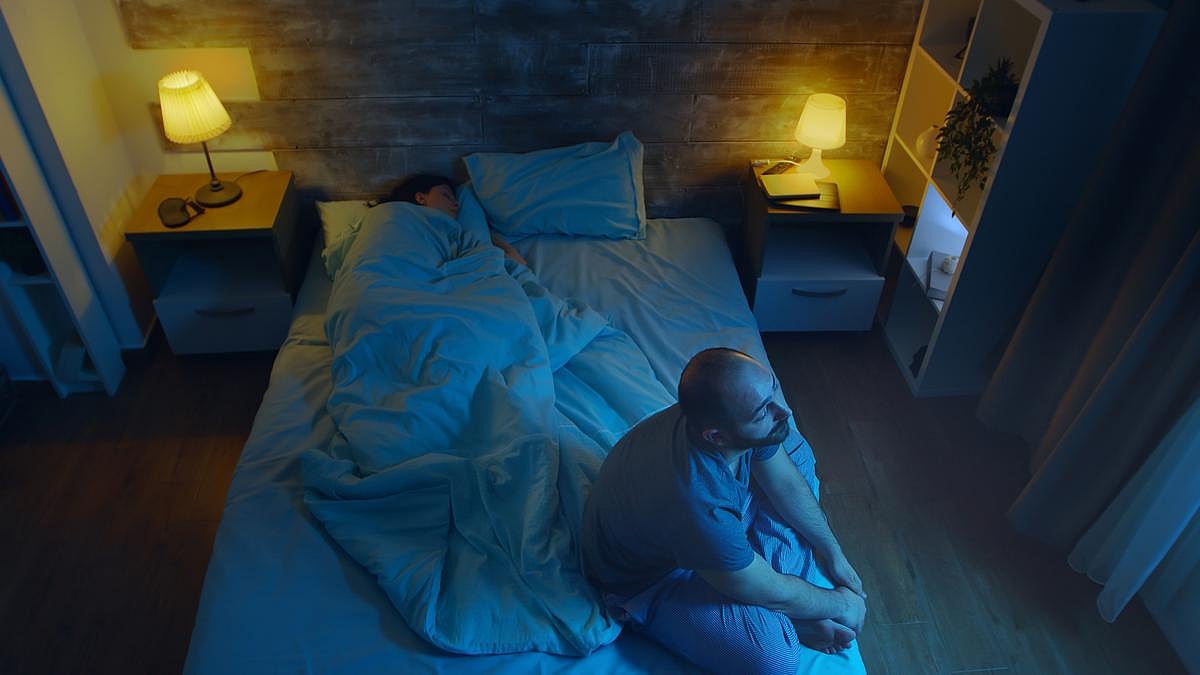Get Healthy!

- Dennis Thompson
- Posted December 5, 2024
'Broken' Sleep Could Be Hallmark of Obesity-Linked Liver Disease
Fatty liver disease may contribute to fragmented sleep patterns, robbing already sick people of good rest, a new study finds.
These folks woke up more often in the night, and then lay awake longer waiting for slumber to reclaim them, researchers found. These patients also reported taking longer to get to sleep.
And their sleep remained poor even after researchers gave them tips for better slumber.
“Those with [fatty liver disease] demonstrated significant fragmentation of their nightly sleep due to frequent awakenings and increased wakefulness,” said investigator Sofia Schaeffer, a postdoctoral researcher at the University of Basel’s Center for Gastrointestinal and Liver Diseases in Switzerland.
Fatty liver disease, formally known as metabolic dysfunction-associated steatotic liver disease (MASLD), occurs when fat builds up in a person’s liver. It’s commonly linked with obesity or type 2 diabetes, and can lead to inflammation, scarring and liver failure.
Fatty liver disease currently affects an estimated 30% of adults, and is expected to affect more than 55% by 2040, researchers said in background notes.
Earlier studies have indicated that fatty liver disease might disturb a person’s sleep cycle, but these have relied on sleep questionnaires, researchers said.
For this study, scientists sought to gather objective data by having people wear wrist monitors that tracked their sleep patterns.
Researchers recruited 46 adult women and men with fatty liver disease, as well as another eight patients who had alcohol-related liver disease. All of the patients with fatty liver disease were obese, and 80% had metabolic syndrome -- a combination of obesity, prediabetes and high triglyceride levels.
Patients with fatty liver disease got the same amount of sleep as a group of 16 healthy volunteers, and they also spent the same amount of time in bed.
But people with fatty liver disease woke up 55% more often in the night than healthy people, and lay awake 113% longer waiting to fall back asleep, researchers found.
People with fatty liver disease also slept more often and longer during the day.
Further, sleep diaries showed that 32% of people with fatty liver disease reported sleep disturbances linked to stress, compared to only 6% of healthy participants.
The new study was published Dec. 3 in the journal Frontiers in Network Physiology.
Despite the potential link, researchers couldn’t say whether fatty liver disease actually causes poor sleep or vice-versa.
“The underlying mechanism presumably involves genetics, environmental factors and the activation of immune responses -- ultimately driven by obesity and metabolic syndrome,” Schaeffer said in a journal news release.
Midway through the study, researchers gave the patients a sleep hygiene class to teach them practical ways to improve their sleep. Unfortunately, the tips had no effect.
“A single sleep hygiene education session didn’t suffice to sustainably impact on the circadian rhythm in either patients with MASLD or healthy controls,” said senior researcher Dr. Christine Bernsmeier, a professor at the University of Basel. “Future studies should explore perpetual sleep counseling sessions or interventions such as light therapy in combination with other lifestyle changes to improve the sleep-wake cycle in patients with MASLD.”
More information
The American College of Gastroenterology has more on metabolic dysfunction-associated steatotic liver disease.
SOURCE: Frontiers, news release, Dec. 4, 2024







